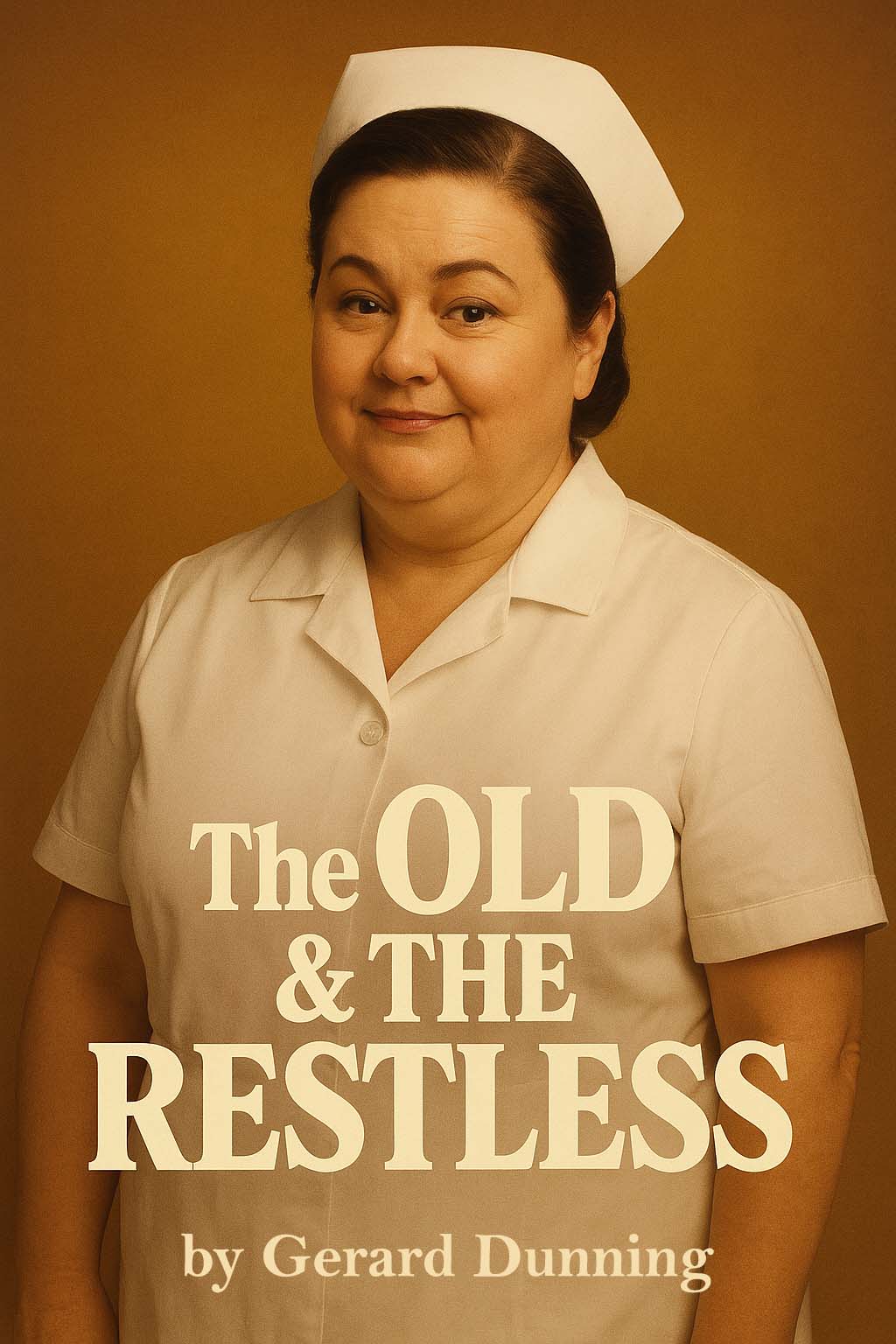
Contact Me Today
Gerard Dunning, Terrigal, NSW 2260, Australia
What's on your mind?
Fill out the form below and we'll get back to you.

Cast of 7 Characters
Steve is a one-act comedy that places an immortal aristocrat inside the machinery of modern unemployment. Blending heightened realism with institutional satire, the play uses fast transitions, precise dialogue, and status-based comedy to expose how bureaucracy erodes identity. Smart, economical, and actor-driven, Steve is a contemporary work about work — and what happens when even eternity is no longer exempt.

Ensemble Cast of 5 Characters
The Great Pastry Kerfuffle of Willowbrook is a whimsical, gently comedic tale told through the warm, retrospective voice of OLD TULLY — a local who has lived long enough to witness every minor squabble and major scandal the town has to offer. But nothing, he insists, compares to the flour-laden calamity that befell the Willowbrook Country Fair’s Pastry Competition all those years ago.

Ensemble Cast of 7 Characters plus 2 minor parts
The Old & The Restless tells the story of a group of nursing home residents who refuse to settle quietly into routine. Tired of bingo, bed checks, and the stern rule of "Matron" Biggs, they hatch a plan to escape. What begins as idle chatter soon snowballs into a full-blown conspiracy, fuelled by clashing personalities, comic mishaps, and a growing sense of rebellion. As the group bickers, blunders, and stumbles through their preparations, they find strength in one another, and a reminder that mischief, friendship, and the desire for freedom don’t fade with age.

Cast of 5 Characters
Meet The Hedgehog. A prickly, manic, and endlessly self-important man in his later years, scrambling to write his own eulogy after a terminal diagnosis. With a pen in hand and a whisky glass within reach, he conjures a heroic, chaotic, and outrageously exaggerated version of his life — loves conquered, battles fought, work victories immortalized. A bittersweet comedy, "The Hedgehog" is a kaleidoscope of memory, distortion, and bravado. By the end, the nickname that haunted, teased, and defined him lands with a mischievous flourish, revealing a man who, despite everything, has the last laugh.

Cast of 4 Characters
Vanilla is a sharp, fast-moving comedy that peeks behind the polished façades of real estate. A charismatic agent’s rehearsed charm collides with a savvy, witty assistant and a cautious young couple, exposing the absurd theater behind open homes. With biting humor, clever social commentary, and high-energy dialogue, the play offers a compact, stage-ready experience that entertains while holding a mirror up to ambition, illusion, and the everyday performances we all play.

Ensemble Cast of 7 Characters plus 2 minor parts
You’re On The Air is a one-act, ensemble comedy written in the tradition of Working Dog Realism — a fast-paced, naturalistic comedic mode that blends overlapping dialogue, deadpan exchanges, and institutional absurdity. The play captures the authentic rhythm of workplace conversation while amplifying the egos, politics, and chaos of an era when radio was king, the music was loud, and the hair was louder.

Cast of 2 Characters
In the stillness of a desolate bus stop, two strangers meet in a haunting conversation that blurs the lines between reality and introspection. Martin, a man haunted by regrets and unresolved choices, is confronted by The Stranger, a figure whose unsettling calm unravels hidden truths. As the dialogue unfolds, the layers of Martin’s life are peeled back, revealing a man caught at the crossroads of his own existence.

Each of my plays is built around a single, uninterrupted act — but within that act, the story unfolds in five distinct movements. This structure draws on Freytag’s Pyramid, the classic five-part dramatic arc that has shaped storytelling for centuries.
Rather than dividing a play into separate acts with breaks, I weave the entire emotional journey into one continuous flow. Each scene shifts tempo and tone, guiding the audience through the five stages of drama: exposition, rising action, climax, falling action, and denouement.
The result is a concentrated theatrical experience — a story that breathes and evolves without pause, yet carries the full depth and rhythm of a traditional five-act work.
It’s a style that invites immersion. The audience stays within the world of the play from first moment to last, moving with the characters as their arcs rise, twist, and resolve — all in one act, five movements, one unbroken heartbeat.
Freytag’s Pyramid is not a formula — it’s a shape, a natural curve of human tension and release - I hope you enjoy them. G.
This work is licensed under the Creative Commons Attribution-NonCommercial-ShareAlike 4.0 International License.
Please send performance details to: [email protected]
For further clarification or to request commercial use rights, contact the author directly.
By proceeding with any performance of Plays by Gerard Dunning, you agree to adhere to the terms of this license.
Thank you for visiting my website. I look forward to collaborating with you.
Make a Payment via Square